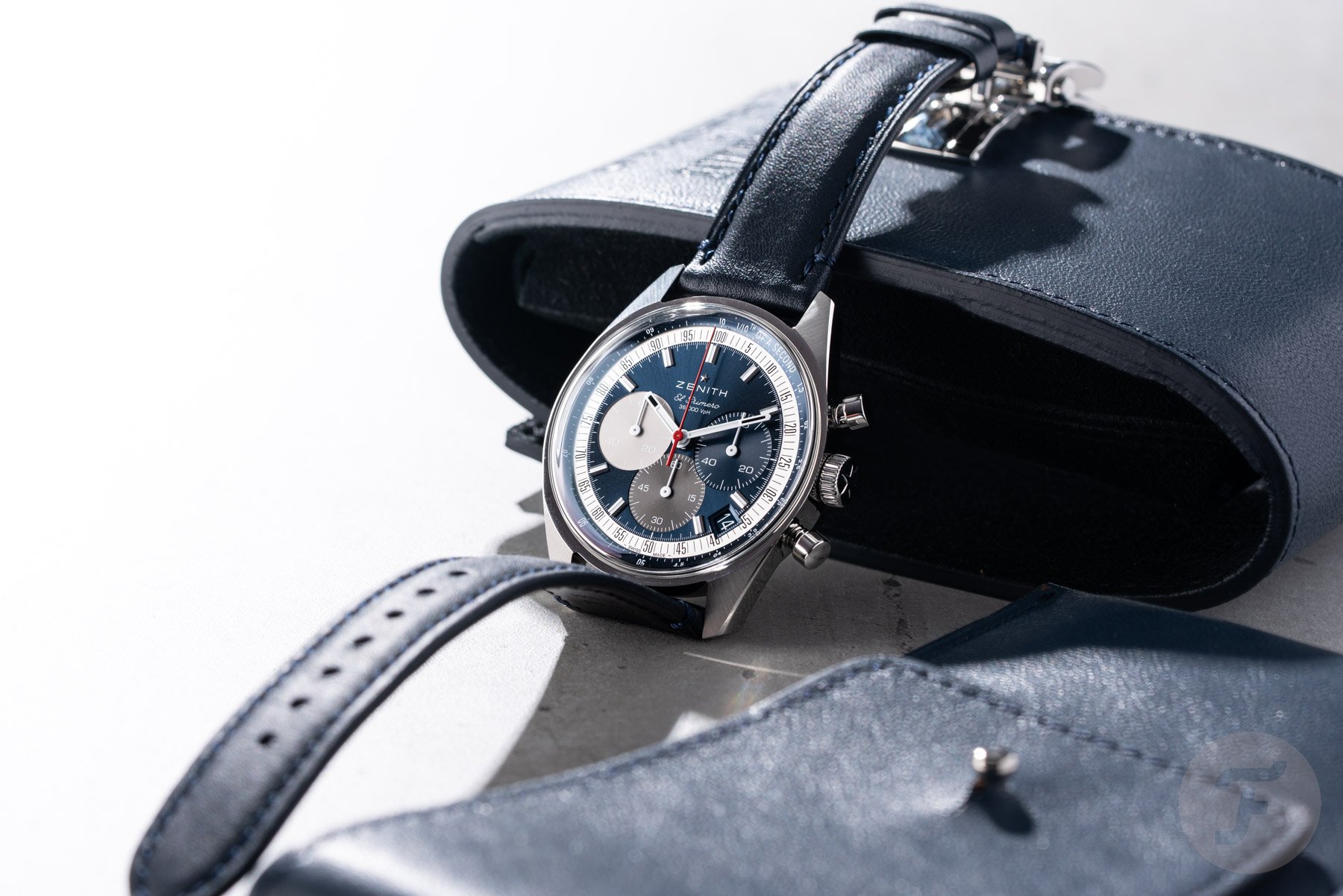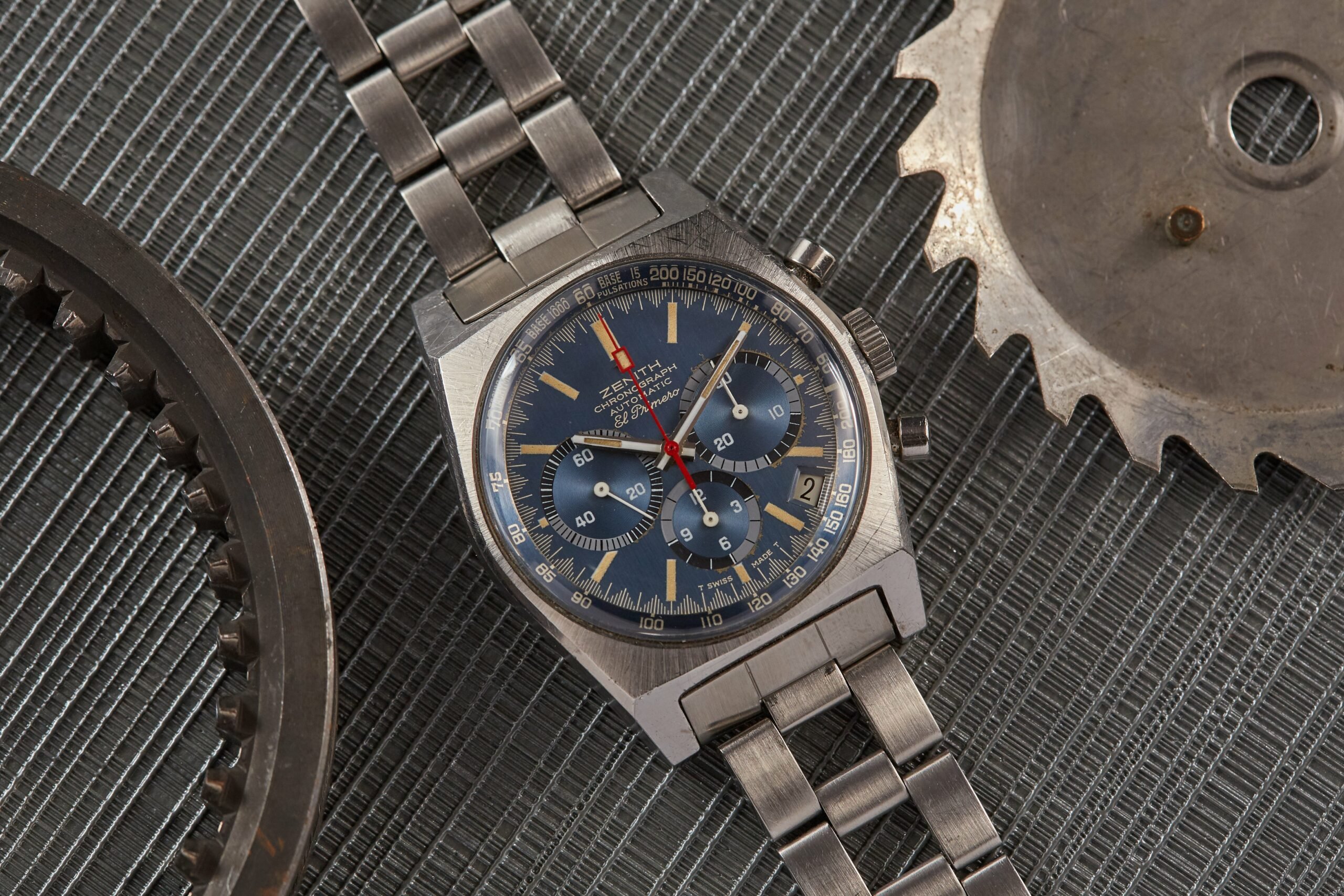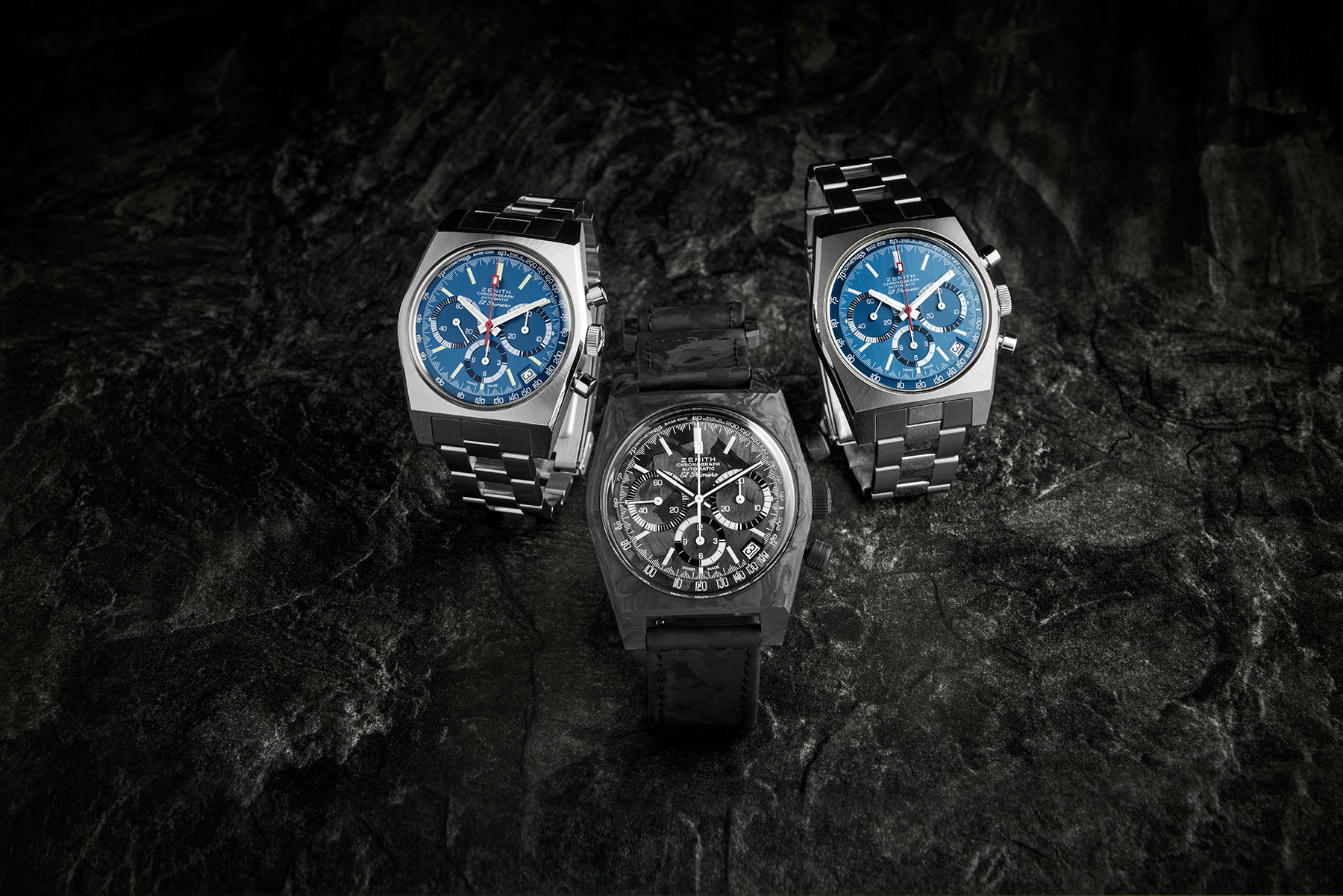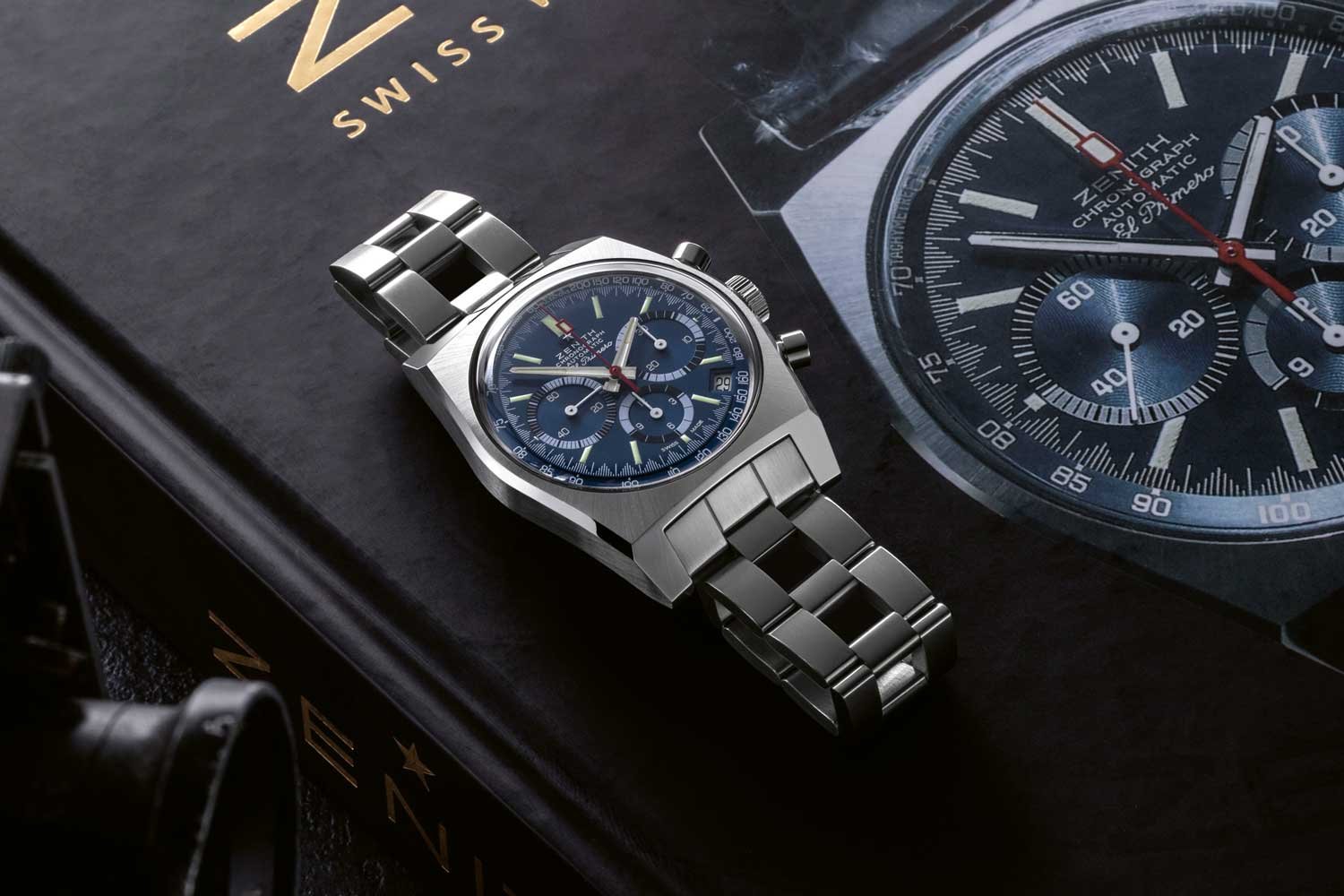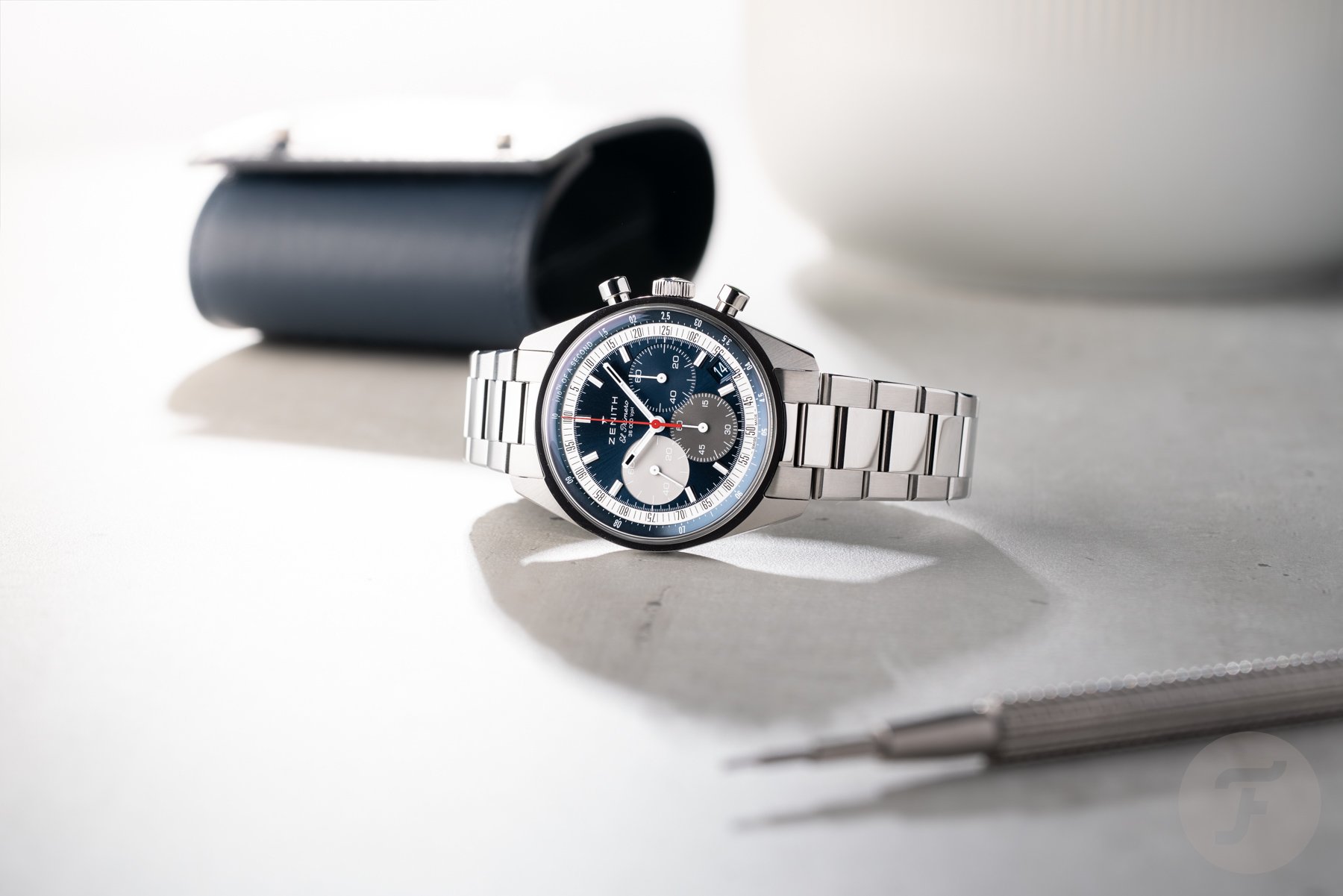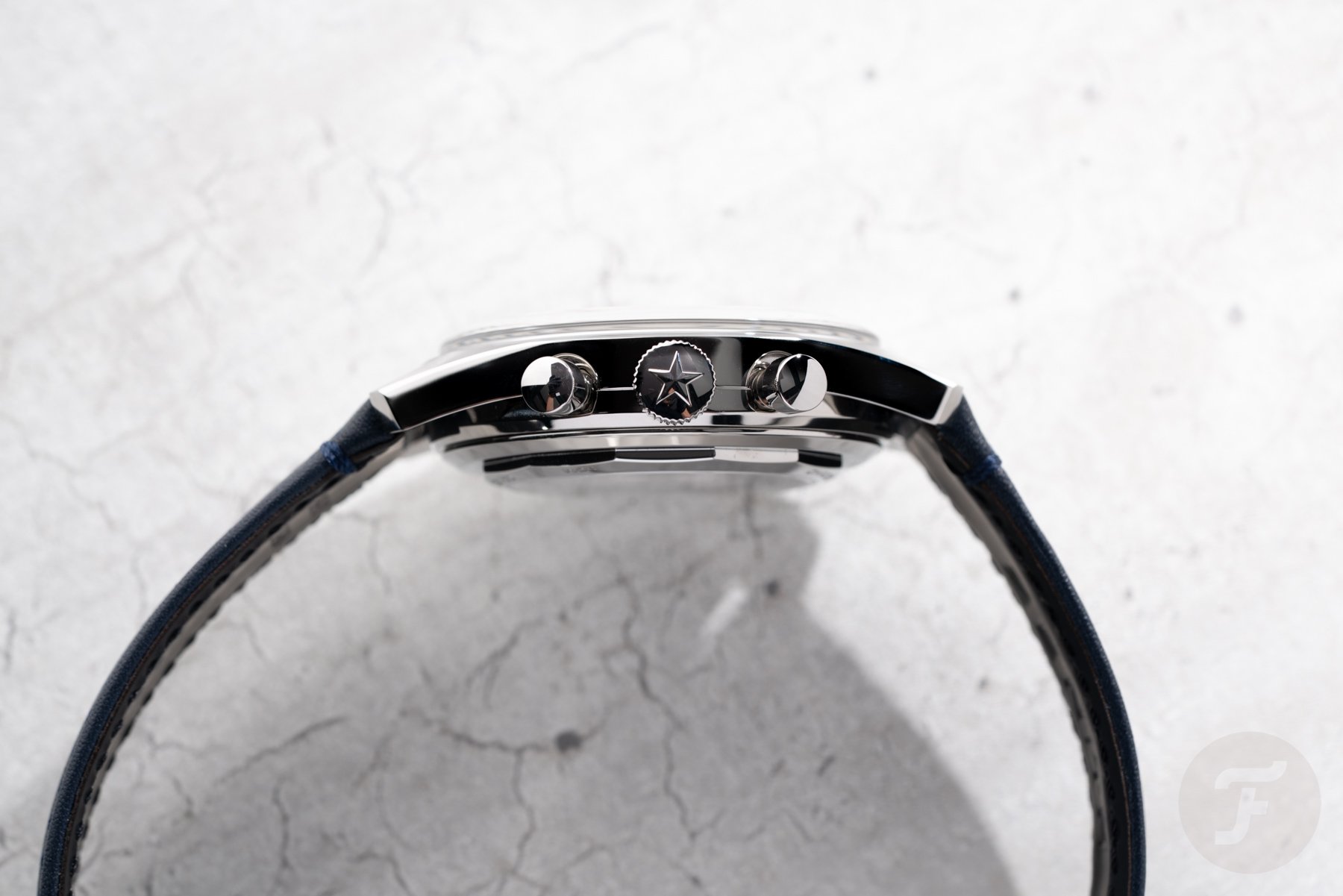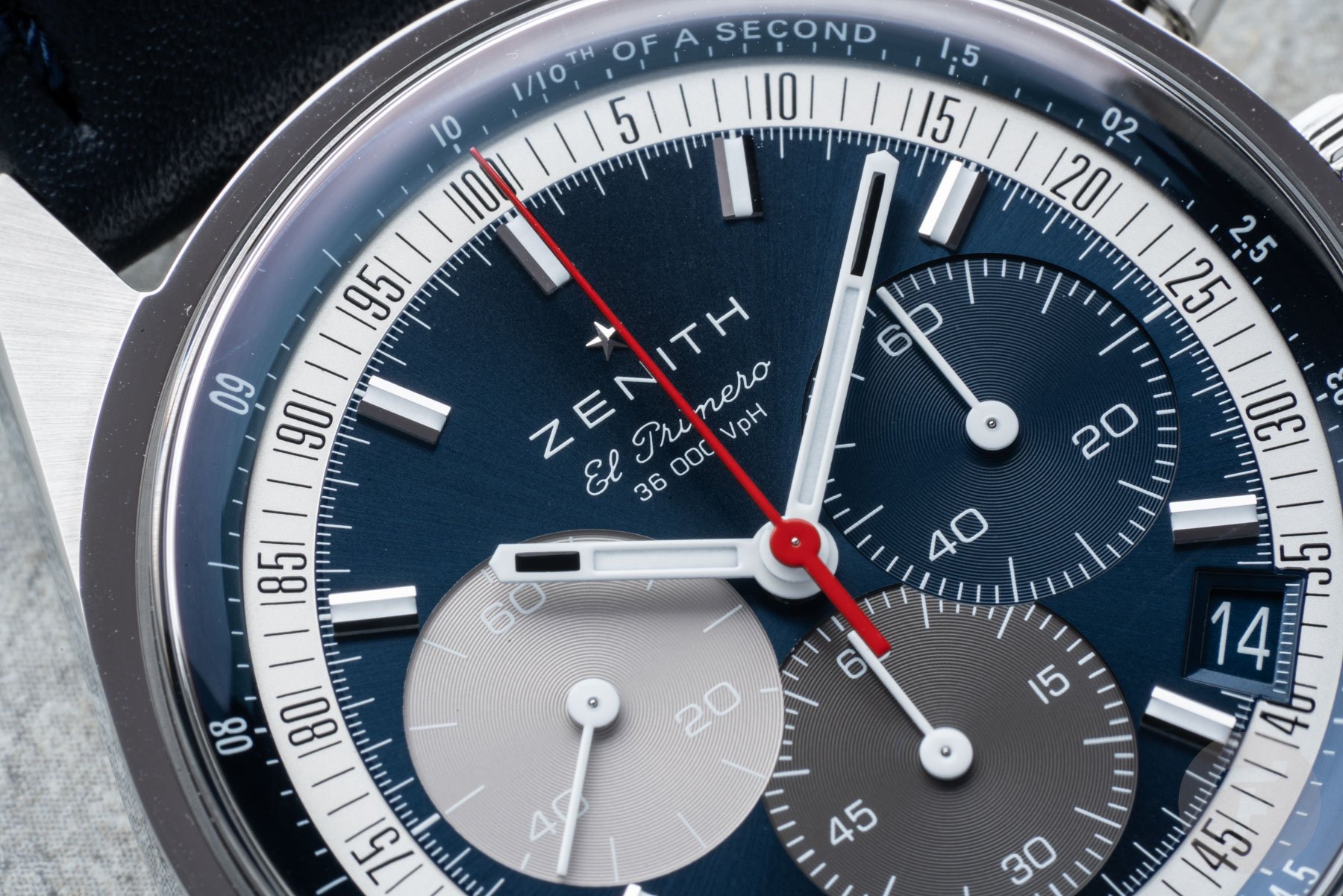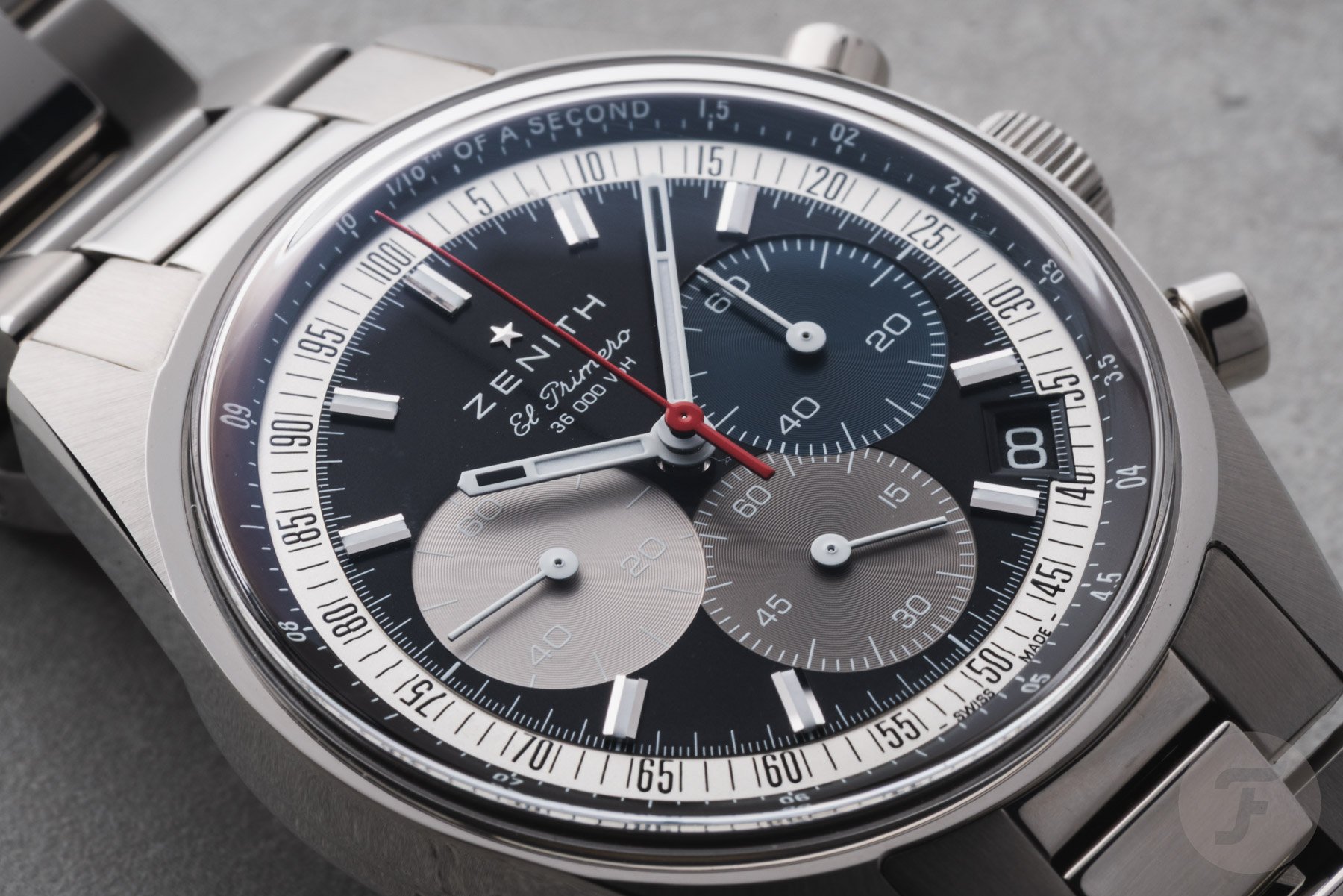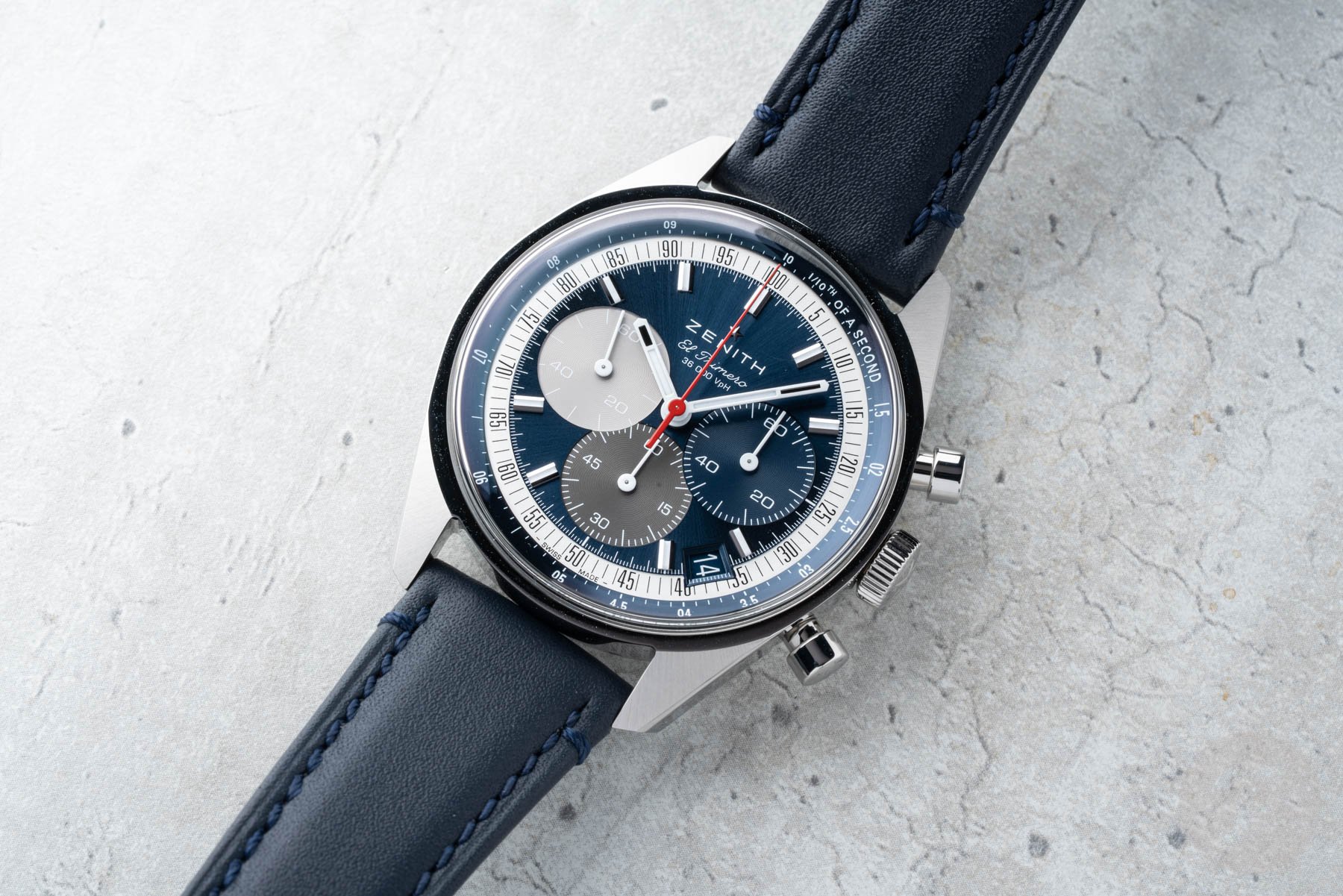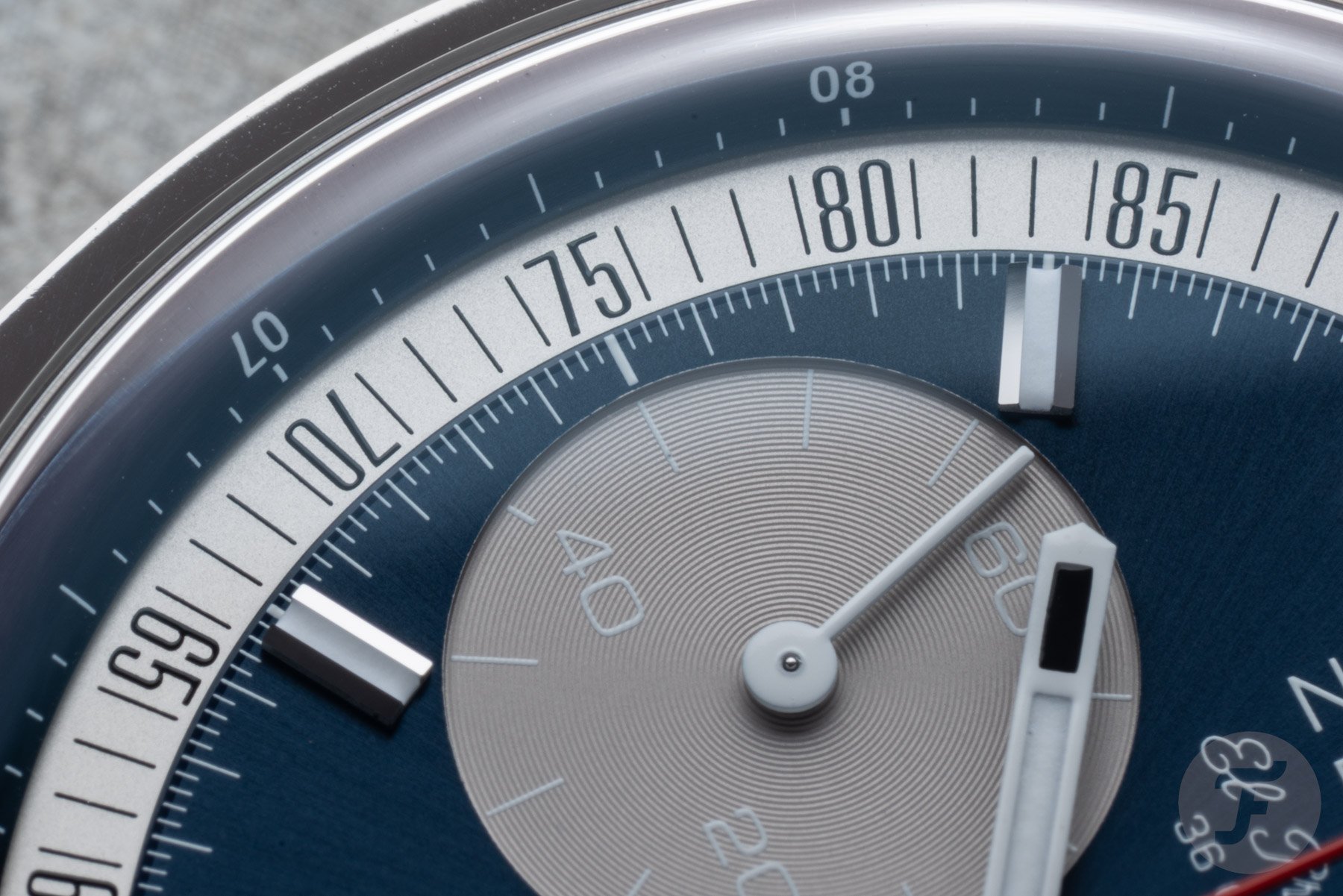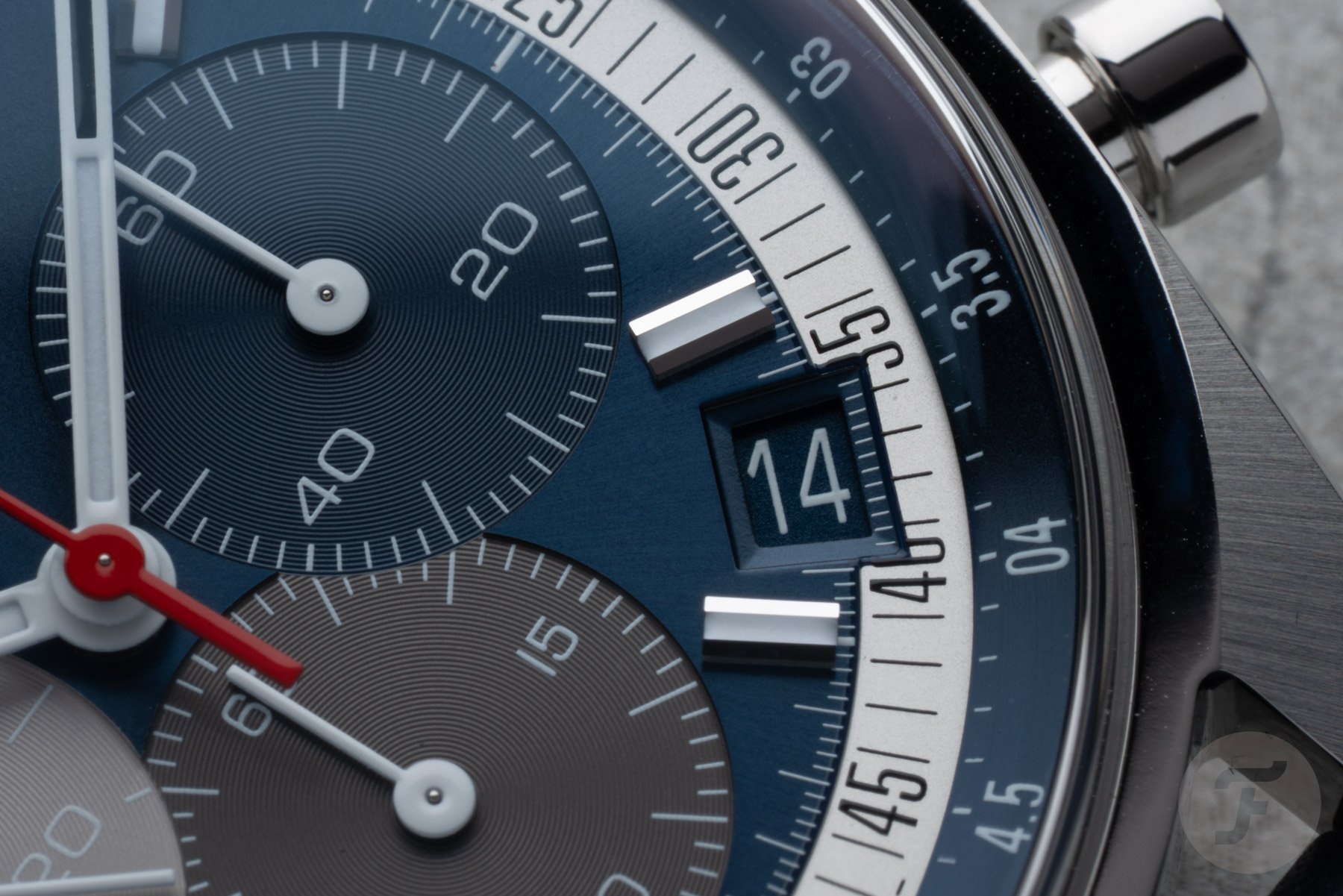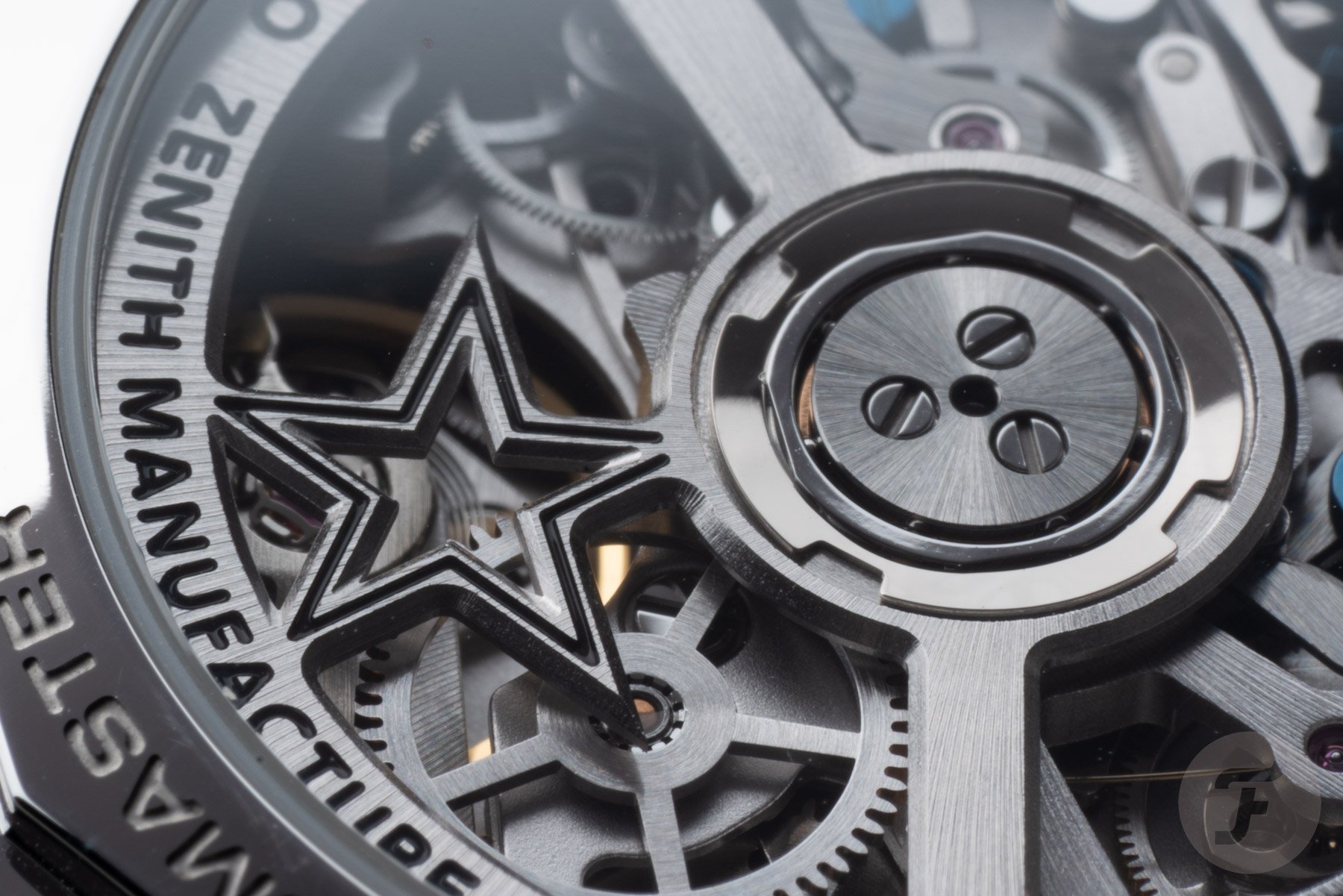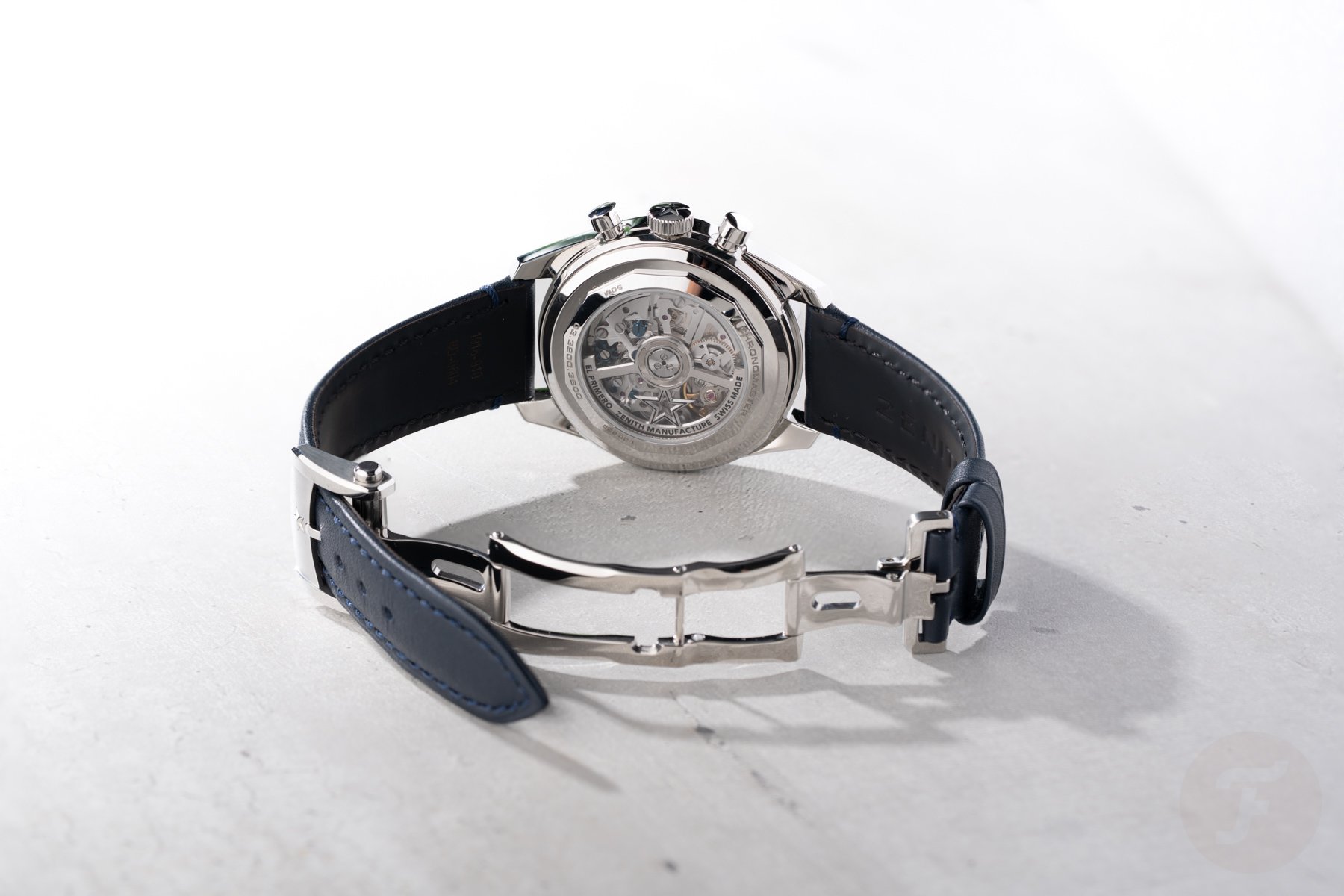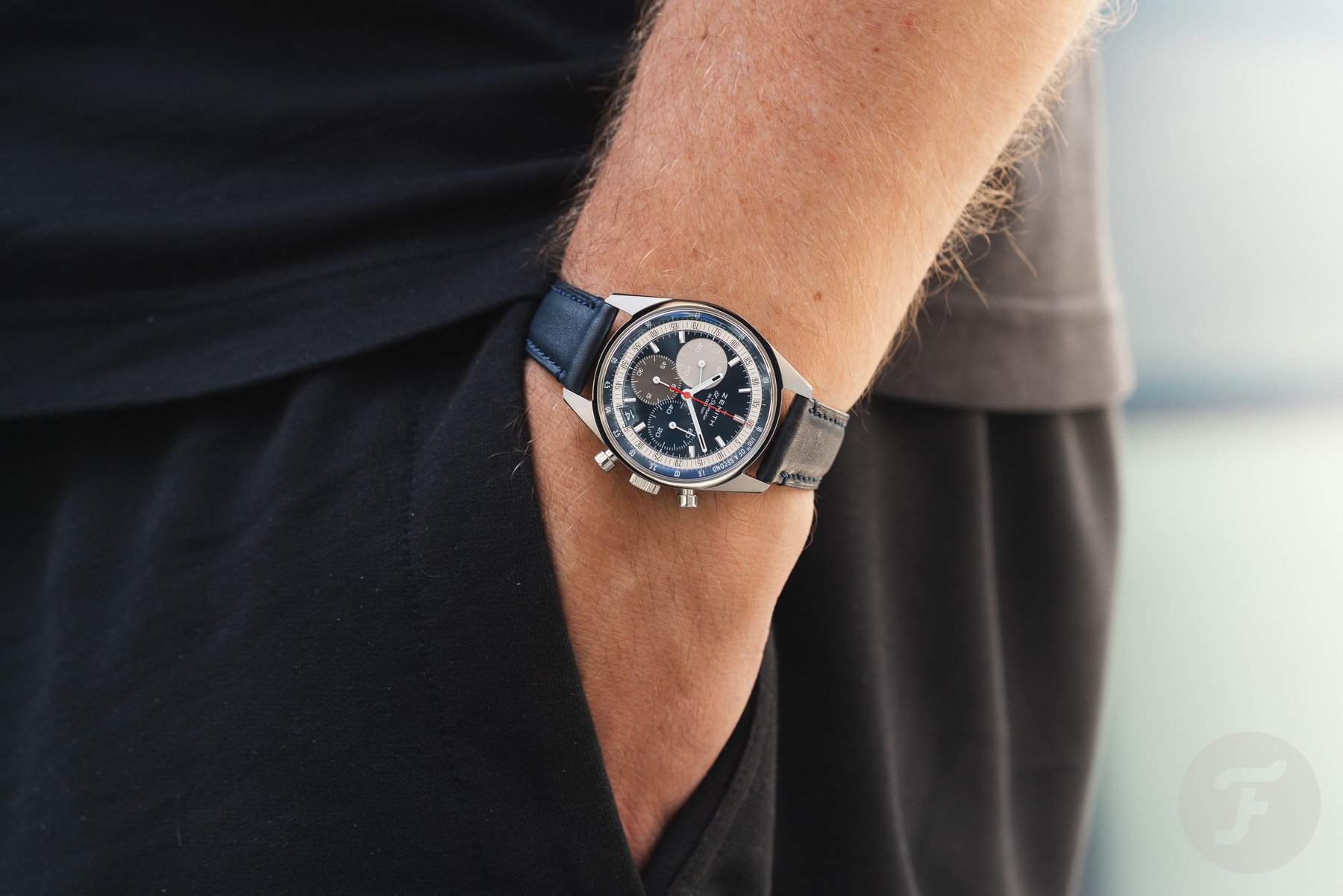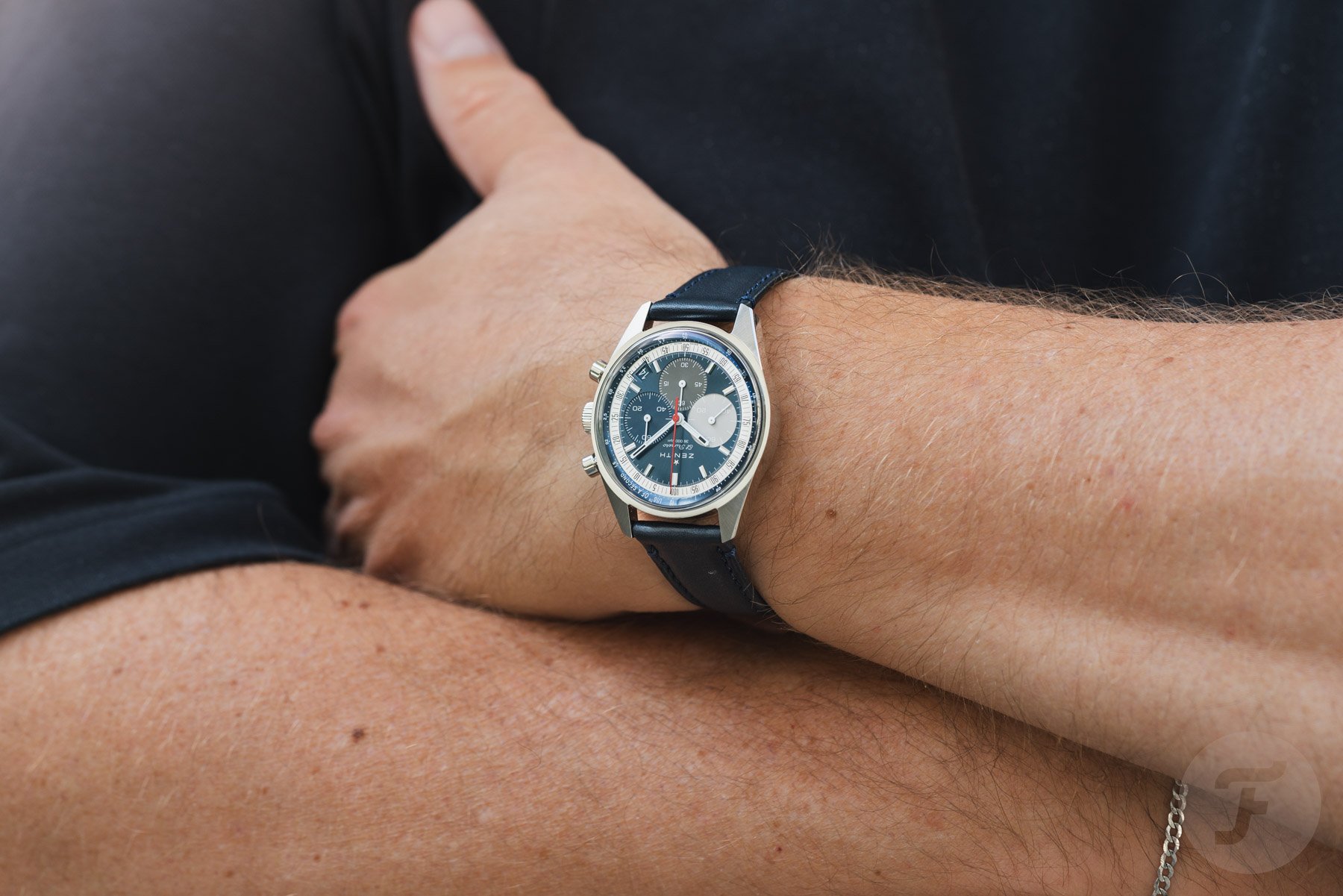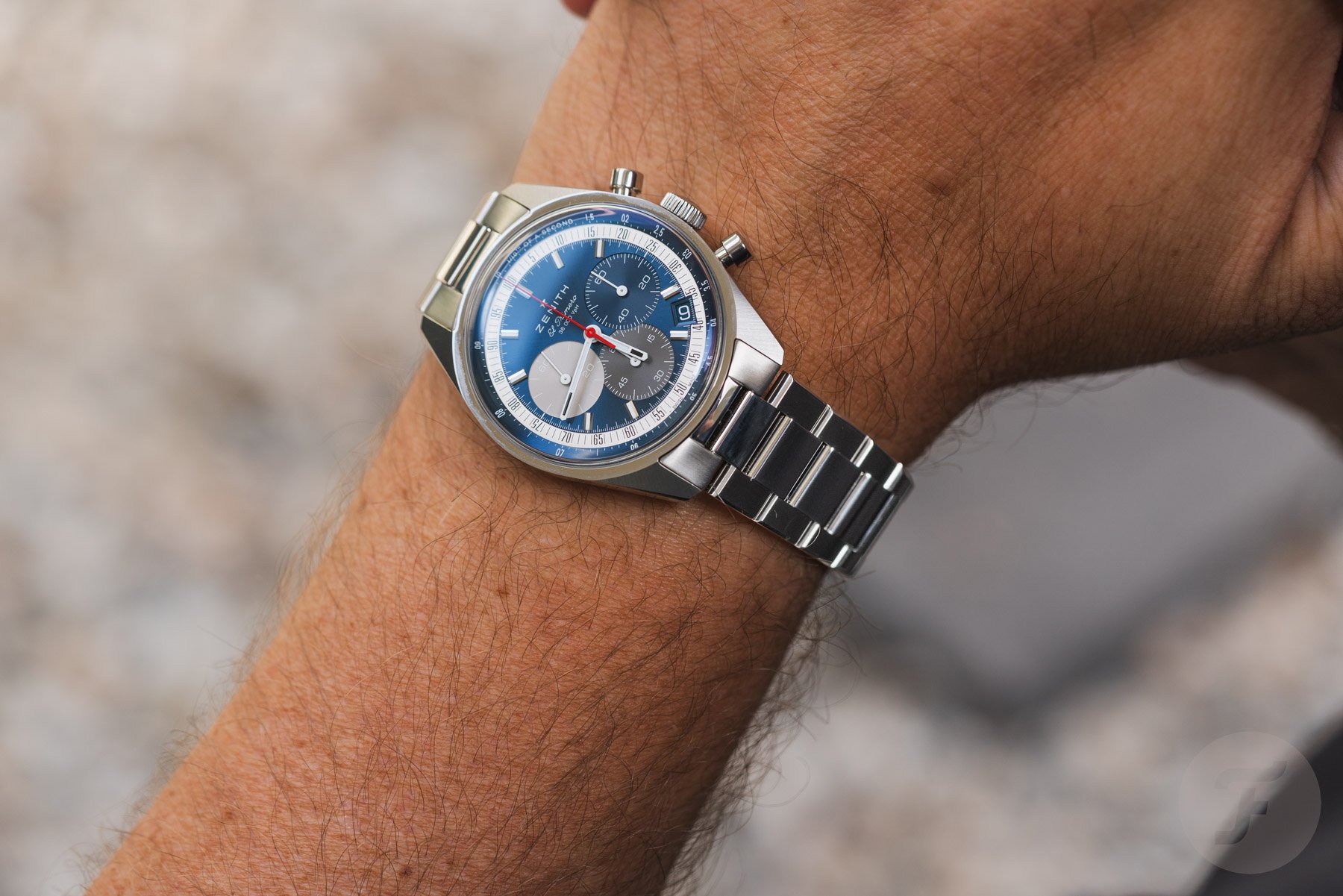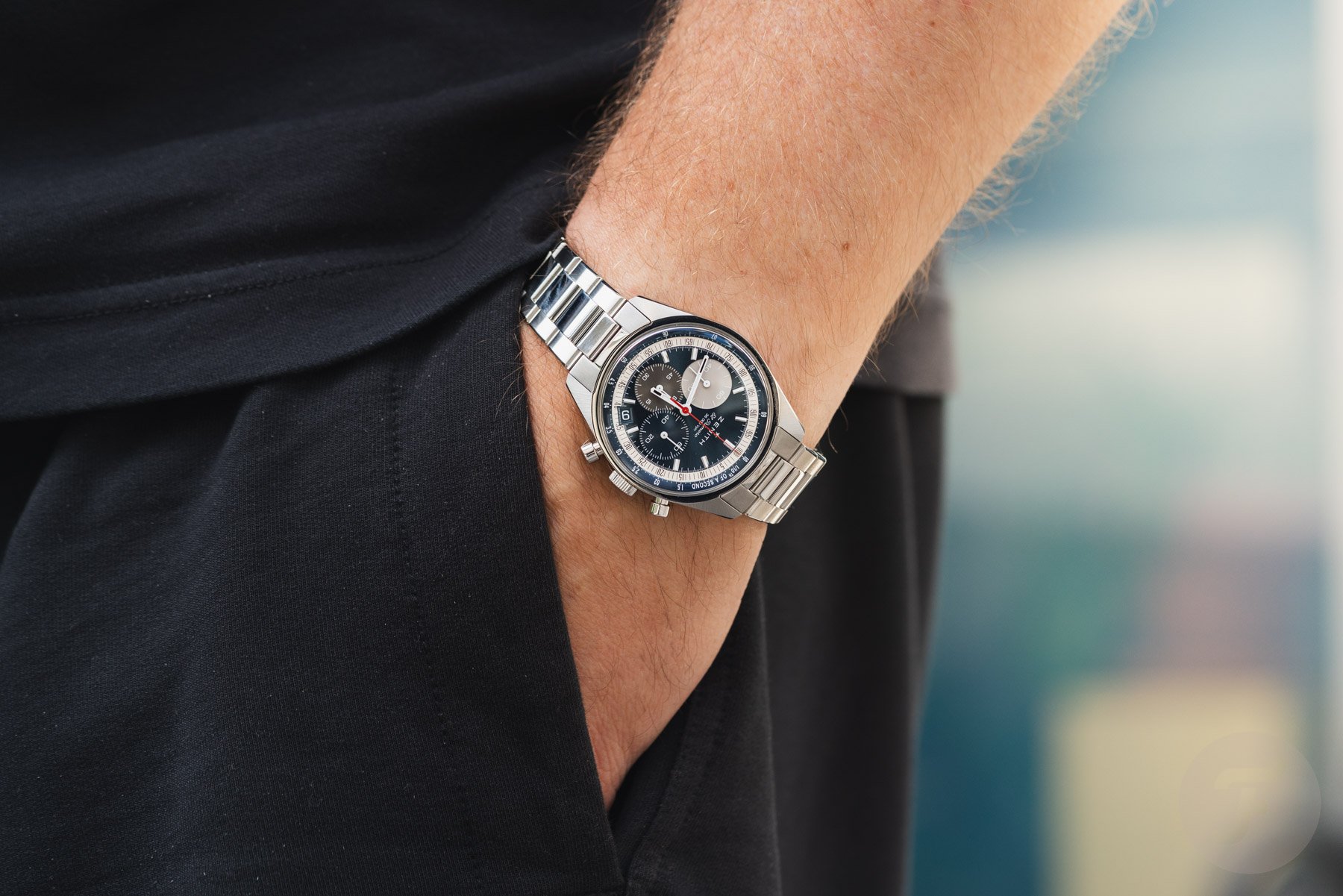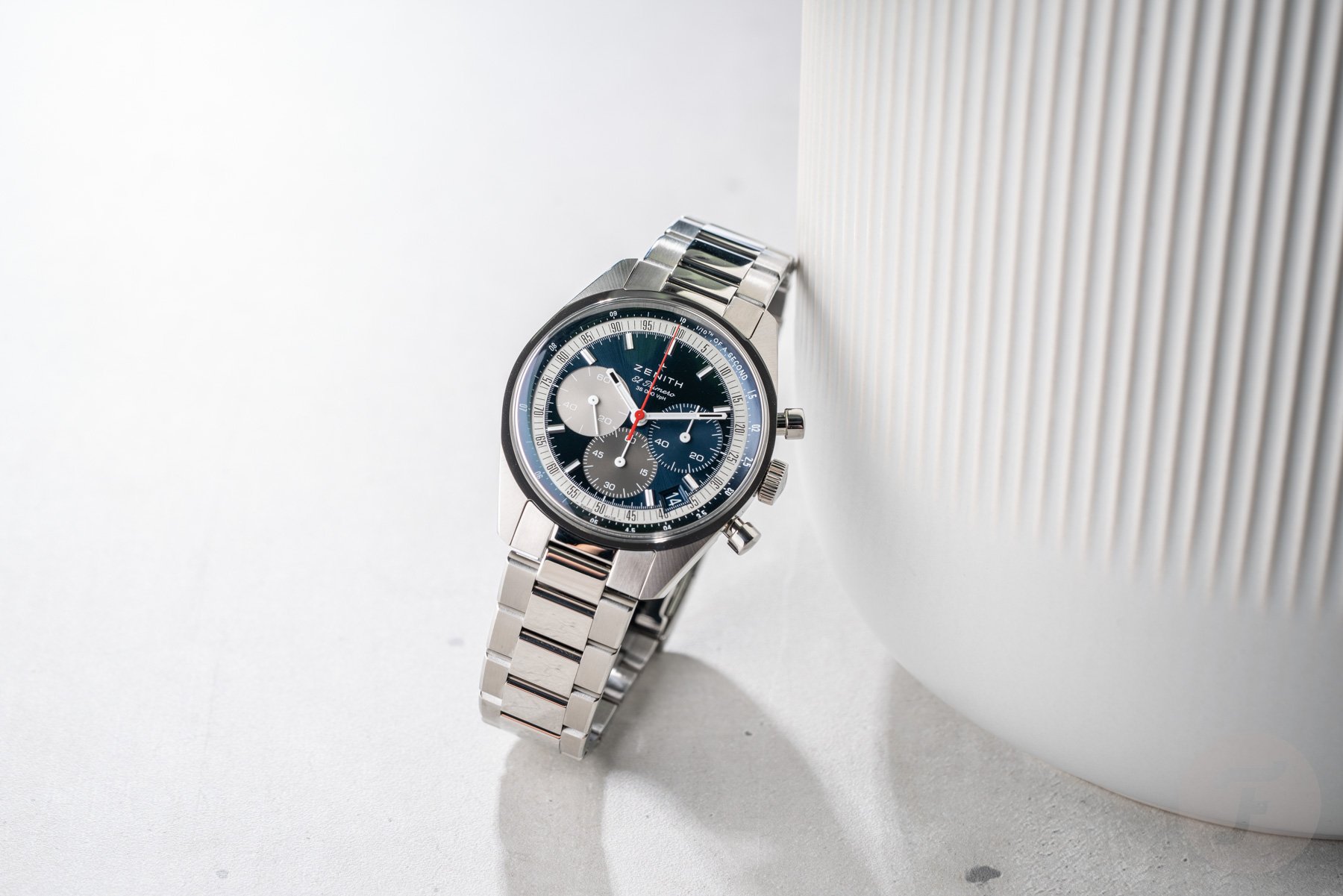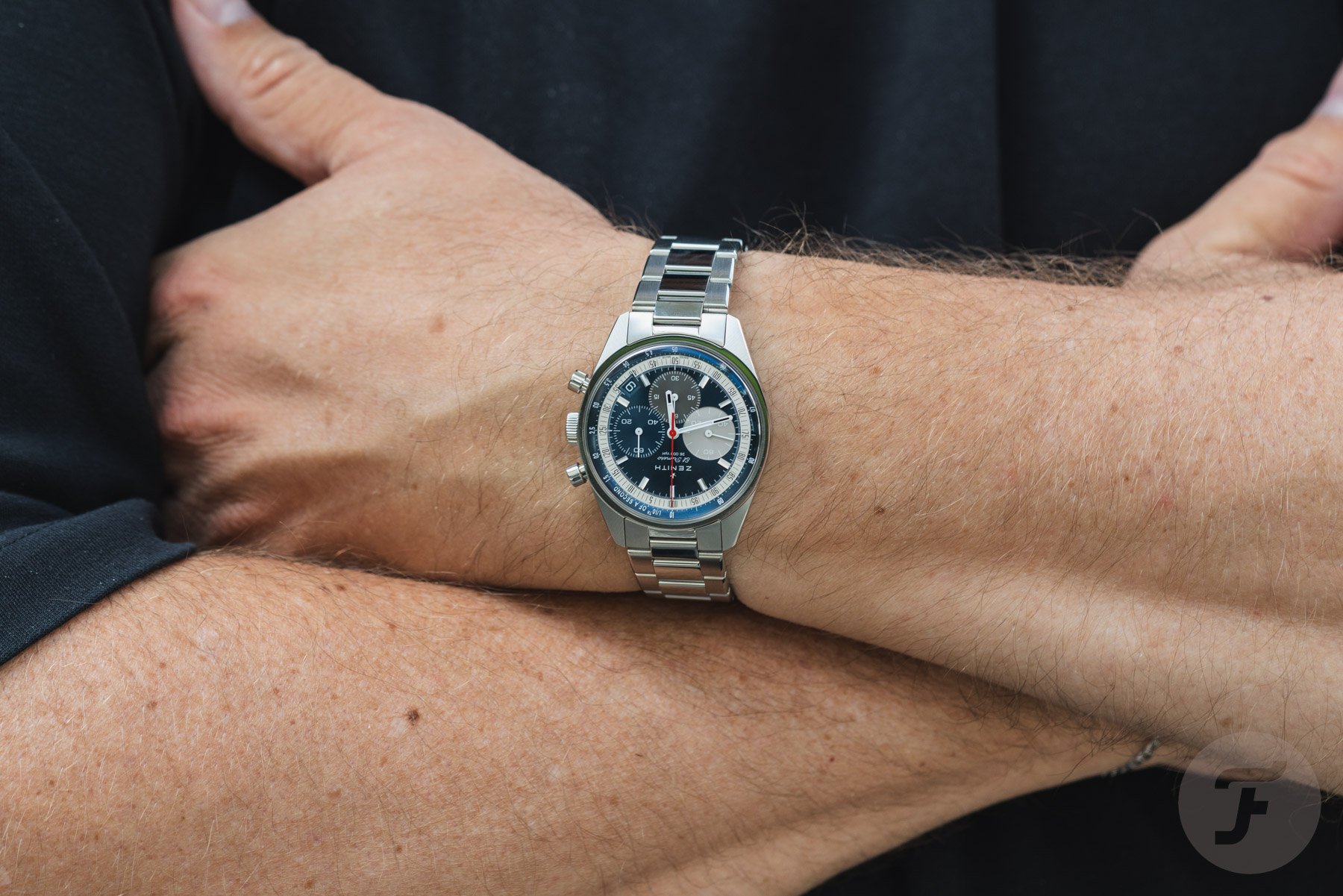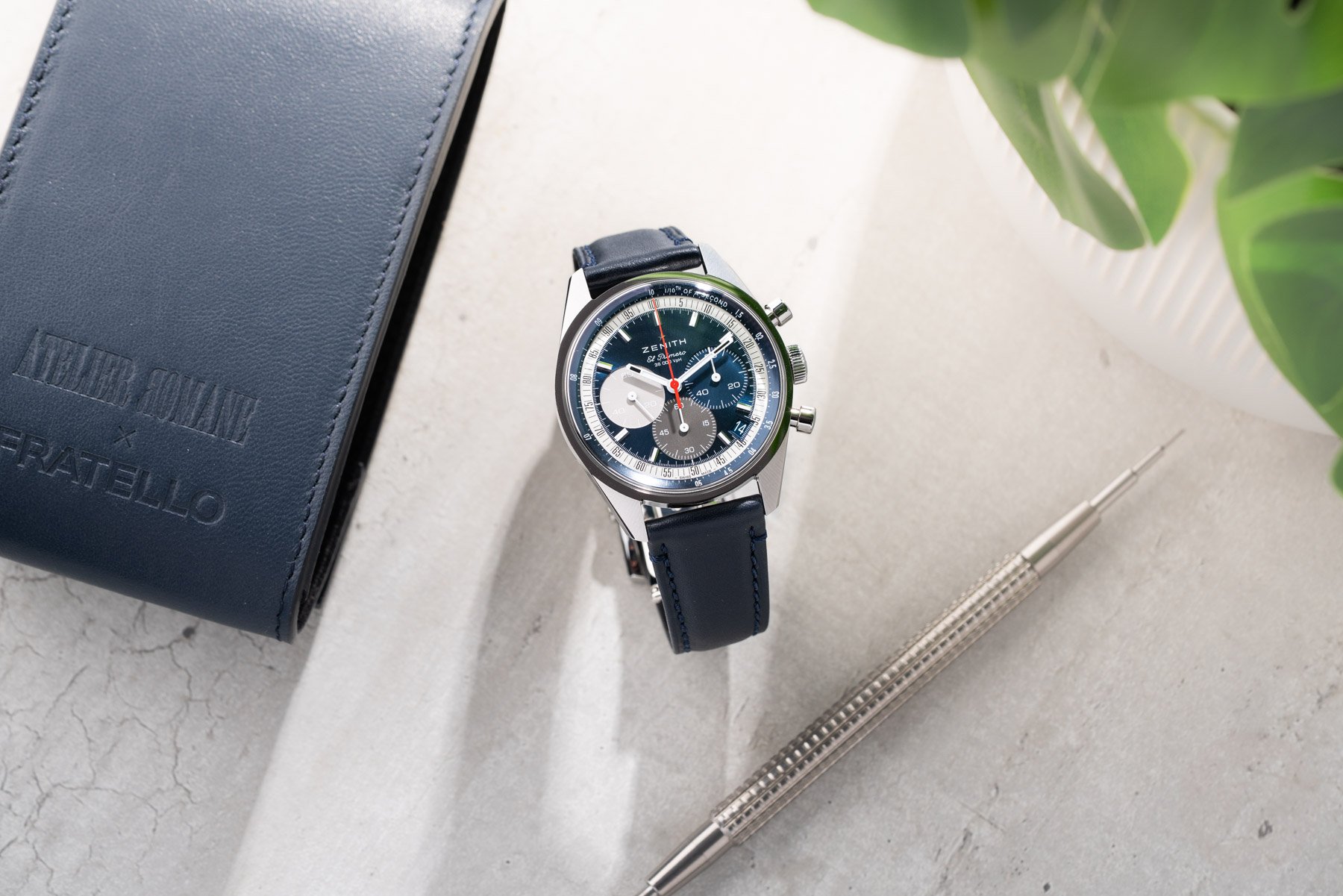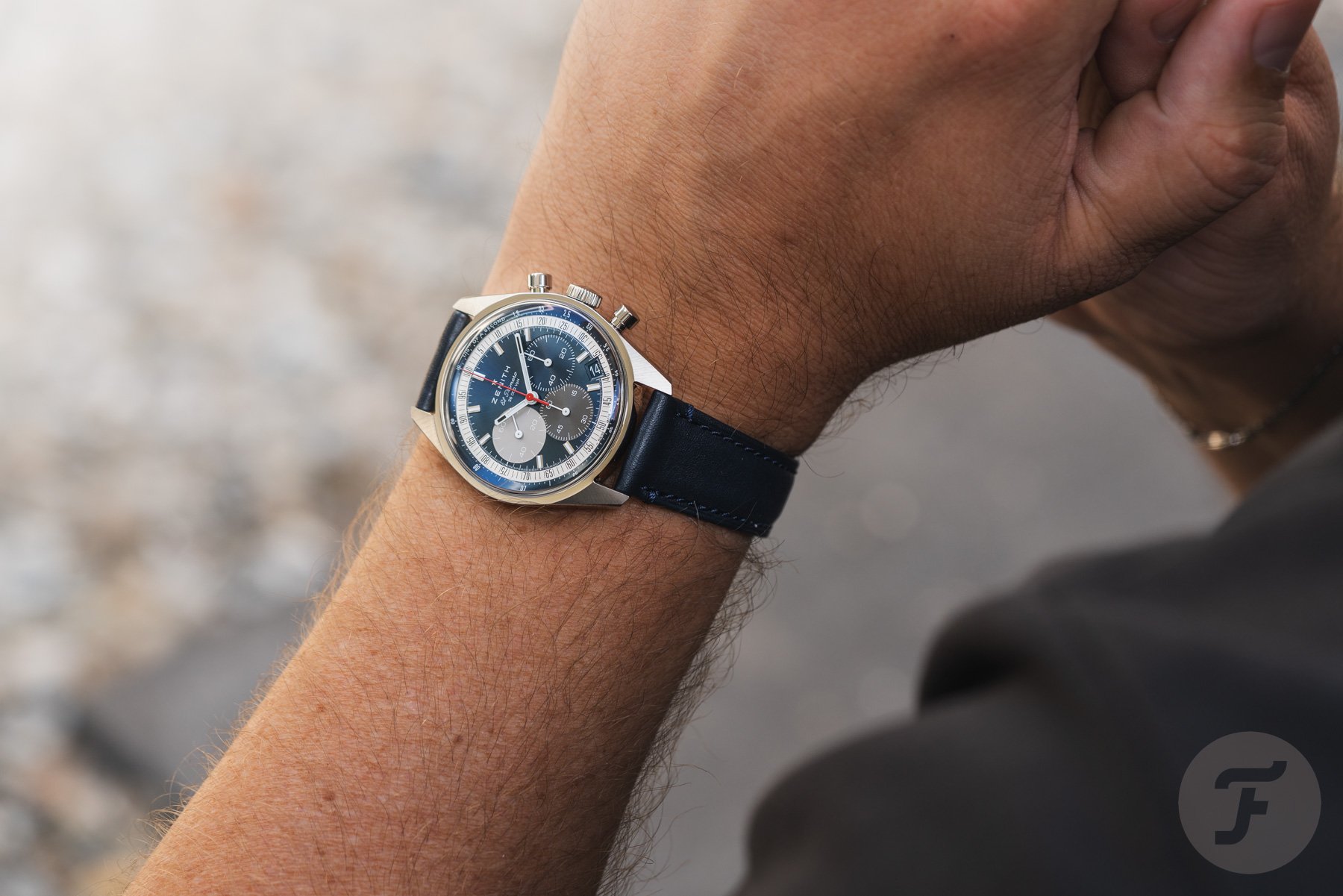Hands-On With The Interesting Blue-Dial Zenith Chronomaster Original
The central theme of Zenith’s 160th anniversary this year is blue. The brand’s color inspired the spectacular dial of the new G.F.J. and a trio of celebratory ceramic releases we saw during Watches and Wonders. Zenith also introduces a new blue dial for the new Chronomaster Original. But fans of the brand know better than to label it just another blue dial. The blue sunray dial of this new Chronomaster Original hints at the dial of the legendary Zenith A3818 “Cover Girl” that graced the cover of Manfred Rössler’s book on the brand. As a result, this release has more historical relevance than a simple change in dial color might imply. I had a chance to experience the watch for myself.
One glance at the new blue-dial Zenith Chronomaster Original was enough for me to crack a smile. I have gone on record before to state that Zenith’s creative team is among the best in the industry right now. Chief Product Officer Romain Marietta and Creative Director Sébastien Gobert have shown a keen eye for creating new timepieces that display great creativity but always respect the brand’s great history. Sometimes, the solutions seem simple, like simply changing a dial, but there is always a clever thought or nod to Zenith’s rich history that sparked the release.
The story of this new Zenith Chronomaster Original
Those familiar with Zenith’s history will know that the El Primero A3818 “Cover Girl” from 1971 is a blue-dial variant of the El Primero A384, which was one of the initial trio of El Primero models introduced in 1969. But the A3818 was not a one-to-one blue translation of the original A384’s panda dial.
The dial had a vertically brushed satin finish, giving it a completely different look from the dial of the A384. On top of that, it featured a “pyramid track” fractional scale that added a lot of character. Zenith produced only 1,000 pieces of the A3818 during its two-year production in 1971 and 1972.
Remarkably enough, the watch didn’t get its nickname until it was featured on the cover of Manfred Rössler’s book Zenith: Swiss Watch Manufacture Since 1865 in 2009. That’s when Zenith fans nicknamed it “Cover Girl.” When asked why he chose the A3818 for the cover, Rössler answered that he had a thing for blue dials.
Sometimes, things are as simple as that. Ever since, we have seen a renewed interest in this classic El Primero. Additionally, Zenith and Revolution collaborated on a trio of modern “Cover Girls.” The first two honored the original blue-dial A3818 in stainless steel and titanium. The third model was the blacked-out carbon version of the “Cover Girl” that came out earlier this year. But the A3818 “Cover Girl” immediately comes to mind whenever I see a beautiful blue dial. This time, it was no different.
The details of the new Chronomaster Original
So, how does a blue dial work for the Zenith Chronomaster Original? In all honesty, we already knew it would work because there is a boutique-exclusive edition with a similar blue sunray dial. That watch has three white sub-dials, though. This new version combines the blue dial with the characteristic overlapping trio of sub-dials in blue and gray, mixing the original A386 with the color of the A3818. However, the new blue dial differs from the slightly brighter blue dial of the A3818 Revival models. The beautiful blue sunray dial is slightly darker but richer and a touch more stylish.
Let’s go over some basic specs first. The Chronomaster Original has a 38mm stainless steel case with a 12.6mm thickness and a 47mm lug-to-lug. Thanks to its significant length, the watch has a great wrist presence. It makes wearing the watch on a leather strap and the three-row stainless steel bracelet a joy.
For this version of the Chronomaster Original, Zenith paired the steel case with a blue sunray dial that has a lot going on. As you can see, the dial prominently features a trio of overlapping sub-dials in gray and blue. That’s also where the immediate difference compared to the black-dial version stands out. The blue sub-dial at 3 o’clock matches the color of the base dial, and that creates a natural balance.
Less contrast but better integration of elements
The advantage for many will be that there is no real contrast between dark blue and black, which can feel slightly weird. However, the flawless match of the sub-dial with the overall dial color also removes the visual effect of the three overlapping sub-dials that other models have. There is no right or wrong here; it is just a matter of personal preference.
My preference? If you read my review of the black-dial version, you know I adore that watch. But that is only half of the answer because I also explained that I adore Zenith’s Chronomaster line and should start making my wish for a small Zenith collection a reality. So let me get back to which of the two I would pick in a bit.
The detailed dial is a joy to behold
Continuing our journey across the dial, we find the blue sunray base contrasted by a white 100-unit scale and the 1/10th-of-a-second scale on the rehaut. The applied hour markers, all filled with white lume, are placed on the inside of the white chronograph ring. An extra step of visual refinement is the minute track between the markers, with every minute subdivided into five steps. This used to be the elapsed-seconds track for the classic A386, and it hinted at the high-frequency movement of the watch. But the modern Chronomaster Original features a 1/100th-of-a-second chronograph, which makes this scale an aesthetic design element rather than a functional element. Still, the refinement it brings is welcome.
The date window at 4:30 is neatly integrated with a date disc that matches the dial color and white printing in line with the other elements on the dial. White hour and minute hands hover above the dial as well. They match the small white hands used for the sub-dials. As we have come to know, the red-lacquered central chronograph hand brings a nice hint of color, and here, it contrasts with the overall blue and white aesthetic.
The modern El Primero 3600 caliber
The sign-off on the dial comes in the form of the Zenith logo, accompanied by the applied Zenith star. Underneath, you will find the signature “El Primero” script with the movement frequency. They are the perfect hints at the El Primero 3600 caliber that you can see thanks to the case back’s sapphire display. The automatic caliber operates at 36,000vph while offering 60 hours of power reserve. It has a skeletonized rotor with the Zenith star and various brushed finishes for extra visual impact.
This modernized version of Zenith’s automatic column-wheel chronograph movement allows the red central hand to travel around the dial once in exactly 10 seconds. As that hand stands out, it is hard to miss it flying over the dial once you activate the chronograph with a click of the upper-right pusher. It’s fun to see the incredible speed the hand travels at, and it’s a great testament to the incredible lineage of El Primero movements.
Wearing the blue-dial Zenith Chronomaster Original
Putting the watch on my wrist felt like coming home. I love wearing the Chronomaster Original because it is comfortable and has proportions that are spot-on for my wrist. This new model comes standard with a blue leather strap with a butterfly clasp that matches the dial color nicely.
Additionally, Zenith includes the stainless steel three-row Oyster-style bracelet with a folding clasp and security lock. The bracelet is super comfortable and features brushed outer links and polished center links. The visual brilliance of the mirror-polished finish is nice, although I must add that the center links easily pick up fingerprints.
The quality of the bracelet is quite good, making wearing the watch an absolute joy. Also, the bracelet is fairly easy to size thanks to the double-screw pins. If Zenith added a toolless micro-adjustment system to the clasp, it would make for a brilliant modern bracelet.
As I explained in my review of the black-dial version, the case profile of the Chronomaster Original feels a bit like an overpass on the wrist. Because the lugs almost lie on top of the case, the only part resting on the wrist is the case back. This results in a bit of space between the lugs and my wrist, which is not an issue for me. It doesn’t affect the overall comfort at all.
Final thoughts on the new blue-dial Zenith Chronomaster Original
Every time I put a Chronomaster Revival, Chronomaster Original, or Chronomaster Sport on my wrist, the watch reminds me of my great love for Zenith. I went as far as stating that the black-dial version had my name on it, but so does this new blue-dial version.
As I explained in the review of the black-dial model, if you love the Chronomaster Revival and Chronomaster Original as much as I do, almost any dial variation leads to the feeling that it’s time to buy one or even start a Zenith-focused collection, as I talked about before.
This new blue-dial Zenith Chronomaster Original is no exception. It proved once more how much I adore Zenith’s classic designs. As for my favorite of the two dial colors, I love both for different reasons. In the article about the black-dial version, I wrote that it feels like it has always been there since the brand introduced the A386. This new blue-dial version does feel different, though, and more modern.
While I am usually not the biggest fan of sunray dials, I am not a purist. If the dial is executed well and suits the watch’s design, I am all for it. That’s my feeling with this new blue-dial version of the Zenith Chronomaster Original. It gives the watch a great, stylish presence, making it another great addition to the lineup for €10,600. Since I can’t decide between this and the black-dial model, the former has become another entry on my increasingly growing wish list of Zenith Chronomaster models. This is yet another signal that I need to start making that collection a reality.

